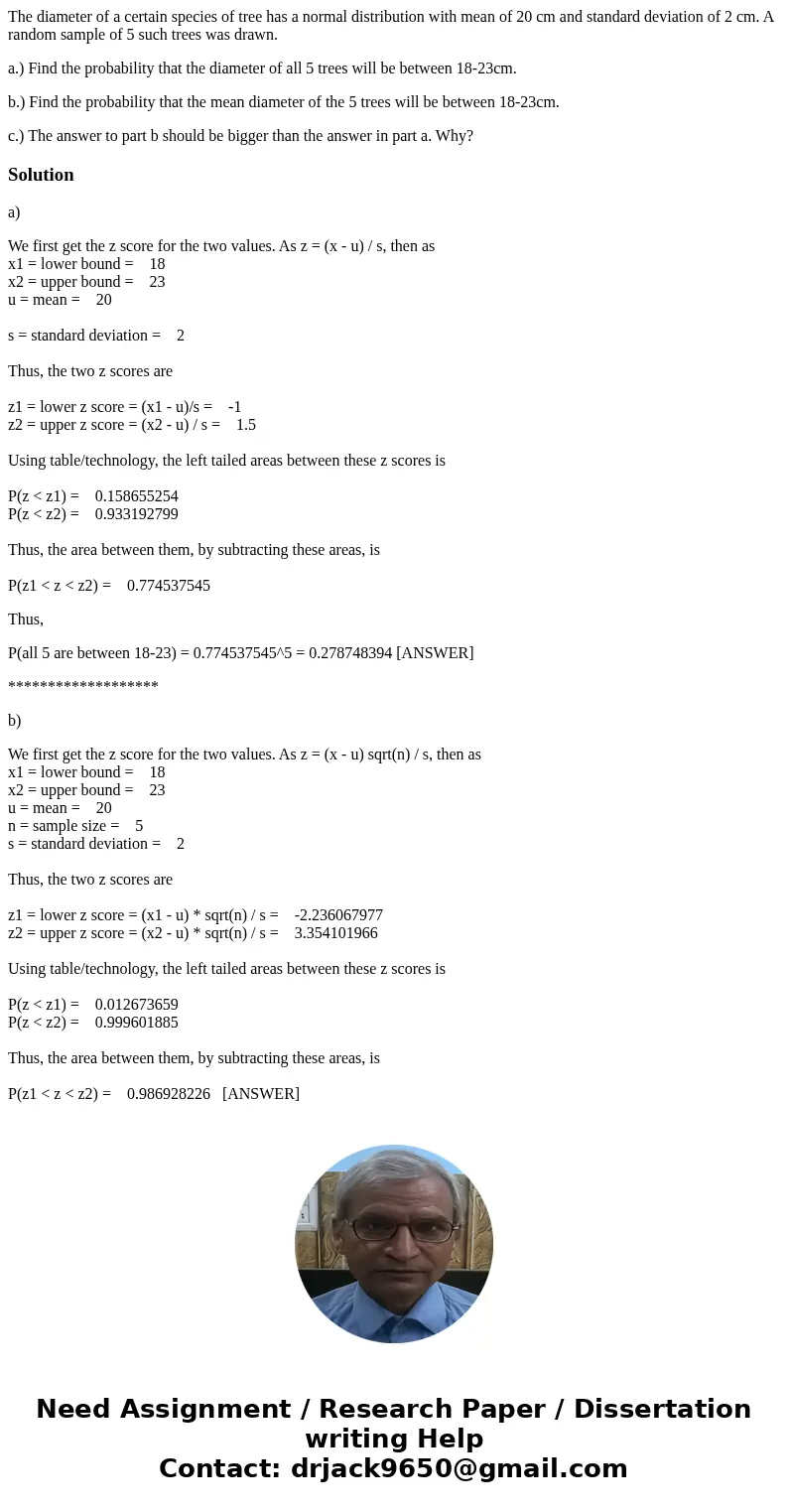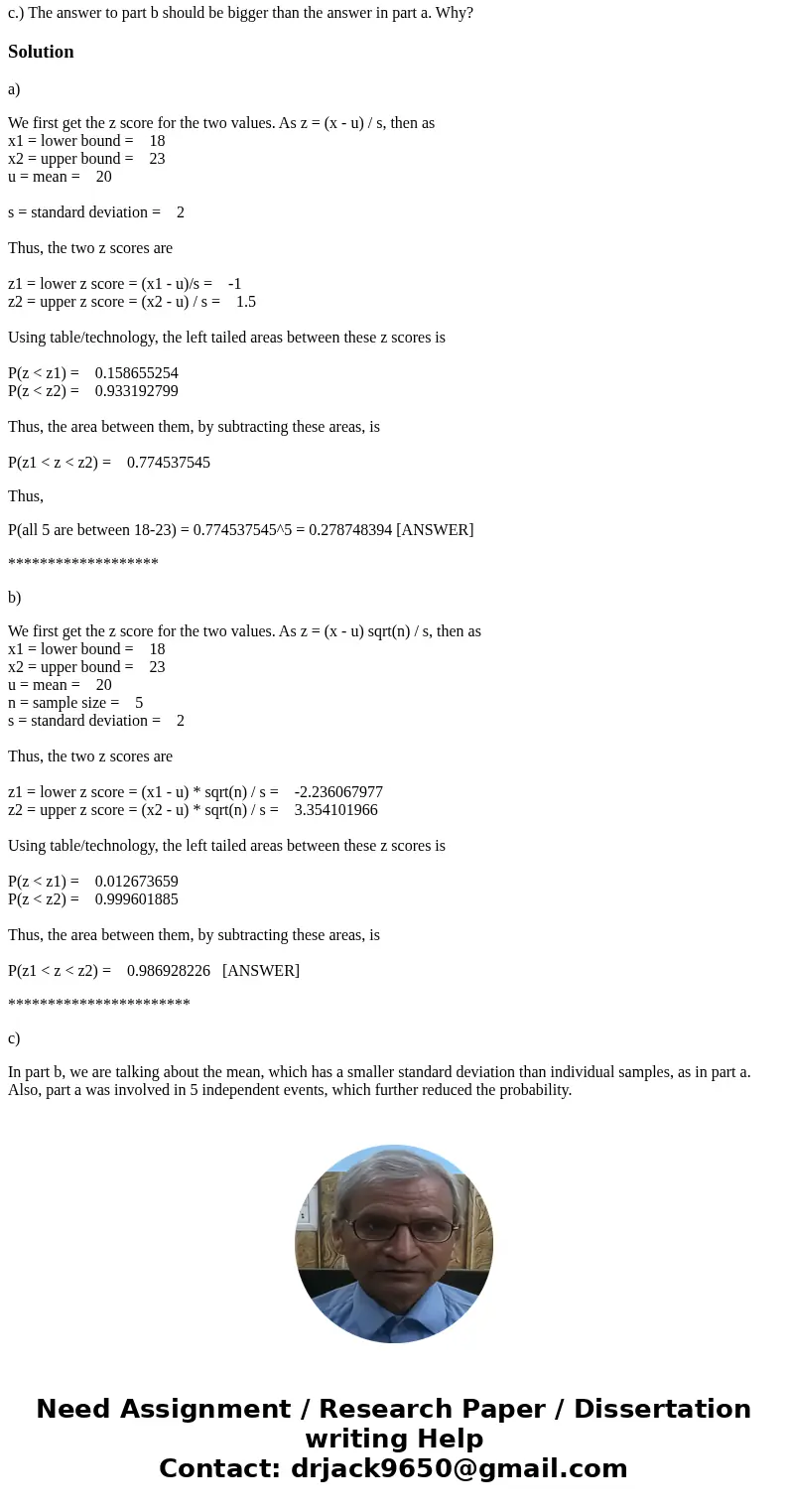The diameter of a certain species of tree has a normal distr
The diameter of a certain species of tree has a normal distribution with mean of 20 cm and standard deviation of 2 cm. A random sample of 5 such trees was drawn.
a.) Find the probability that the diameter of all 5 trees will be between 18-23cm.
b.) Find the probability that the mean diameter of the 5 trees will be between 18-23cm.
c.) The answer to part b should be bigger than the answer in part a. Why?
Solution
a)
We first get the z score for the two values. As z = (x - u) / s, then as
x1 = lower bound = 18
x2 = upper bound = 23
u = mean = 20
s = standard deviation = 2
Thus, the two z scores are
z1 = lower z score = (x1 - u)/s = -1
z2 = upper z score = (x2 - u) / s = 1.5
Using table/technology, the left tailed areas between these z scores is
P(z < z1) = 0.158655254
P(z < z2) = 0.933192799
Thus, the area between them, by subtracting these areas, is
P(z1 < z < z2) = 0.774537545
Thus,
P(all 5 are between 18-23) = 0.774537545^5 = 0.278748394 [ANSWER]
*******************
b)
We first get the z score for the two values. As z = (x - u) sqrt(n) / s, then as
x1 = lower bound = 18
x2 = upper bound = 23
u = mean = 20
n = sample size = 5
s = standard deviation = 2
Thus, the two z scores are
z1 = lower z score = (x1 - u) * sqrt(n) / s = -2.236067977
z2 = upper z score = (x2 - u) * sqrt(n) / s = 3.354101966
Using table/technology, the left tailed areas between these z scores is
P(z < z1) = 0.012673659
P(z < z2) = 0.999601885
Thus, the area between them, by subtracting these areas, is
P(z1 < z < z2) = 0.986928226 [ANSWER]
***********************
c)
In part b, we are talking about the mean, which has a smaller standard deviation than individual samples, as in part a. Also, part a was involved in 5 independent events, which further reduced the probability.


 Homework Sourse
Homework Sourse